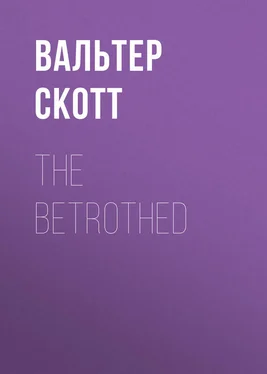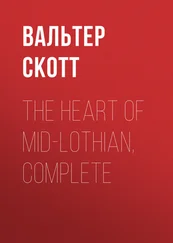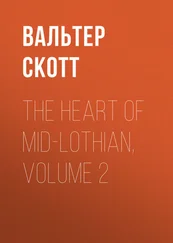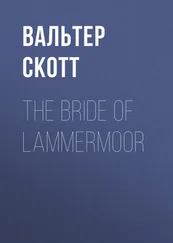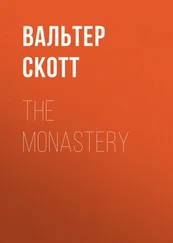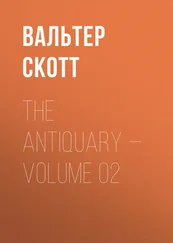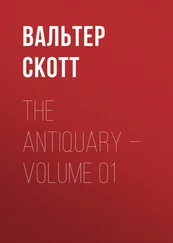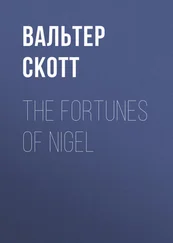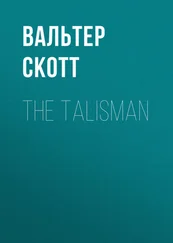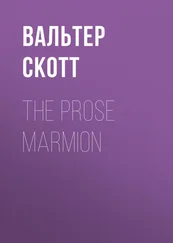Вальтер Скотт - The Betrothed
Здесь есть возможность читать онлайн «Вальтер Скотт - The Betrothed» — ознакомительный отрывок электронной книги совершенно бесплатно, а после прочтения отрывка купить полную версию. В некоторых случаях можно слушать аудио, скачать через торрент в формате fb2 и присутствует краткое содержание. Жанр: foreign_antique, foreign_prose, на английском языке. Описание произведения, (предисловие) а так же отзывы посетителей доступны на портале библиотеки ЛибКат.
- Название:The Betrothed
- Автор:
- Жанр:
- Год:неизвестен
- ISBN:нет данных
- Рейтинг книги:3 / 5. Голосов: 1
-
Избранное:Добавить в избранное
- Отзывы:
-
Ваша оценка:
- 60
- 1
- 2
- 3
- 4
- 5
The Betrothed: краткое содержание, описание и аннотация
Предлагаем к чтению аннотацию, описание, краткое содержание или предисловие (зависит от того, что написал сам автор книги «The Betrothed»). Если вы не нашли необходимую информацию о книге — напишите в комментариях, мы постараемся отыскать её.
The Betrothed — читать онлайн ознакомительный отрывок
Ниже представлен текст книги, разбитый по страницам. Система сохранения места последней прочитанной страницы, позволяет с удобством читать онлайн бесплатно книгу «The Betrothed», без необходимости каждый раз заново искать на чём Вы остановились. Поставьте закладку, и сможете в любой момент перейти на страницу, на которой закончили чтение.
Интервал:
Закладка:
CHAPTER THE SECOND
In Madoc's tent the clarion sounds,
With rapid clangor hurried far;
Each hill and dale the note rebounds,
But when return the sons of war?
Thou, born of stern Necessity,
Dull Peace! the valley yields to thee,
And owns thy melancholy sway.
The feasts of the ancient British princes usually exhibited all the rude splendour and liberal indulgence of mountain hospitality, and Gwenwyn was, on the present occasion, anxious to purchase popularity by even an unusual display of profusion; for he was sensible that the alliance which he meditated might indeed be tolerated, but could not be approved, by his subjects and followers.
The following incident, trifling in itself, confirmed his apprehensions. Passing one evening, when it was become nearly dark, by the open window of a guard-room, usually occupied by some few of his most celebrated soldiers, who relieved each other in watching his palace, he heard Morgan, a man distinguished for strength, courage, and ferocity, say to the companion with whom he was sitting by the watch-fire, "Gwenwyn is turned to a priest, or a woman! When was it before these last months, that a follower of his was obliged to gnaw the meat from the bone so closely, as I am now peeling the morsel which I hold in my hand?" [Footnote: It is said in Highland tradition, that one of the Macdonalds of the Isles, who had suffered his broadsword to remain sheathed for some months after his marriage with a beautiful woman, was stirred to a sudden and furious expedition against the mainland by hearing conversation to the above purpose among his bodyguard.]
"Wait but awhile," replied his comrade, "till the Norman match be accomplished; and so small will be the prey we shall then drive from the Saxon churls, that we may be glad to swallow, like hungry dogs, the very bones themselves."
Gwenwyn heard no more of their conversation; but this was enough to alarm his pride as a soldier, and his jealousy as a prince. He was sensible, that the people over whom he ruled were at once fickle in their disposition, impatient of long repose, and full of hatred against their neighbours; and he almost dreaded the consequences of the inactivity to which a long truce might reduce them. The risk was now incurred, however; and to display even more than his wonted splendour and liberality, seemed the best way of reconciling the wavering affections of his subjects.
A Norman would have despised the barbarous magnificence of an entertainment, consisting of kine and sheep roasted whole, of goat's flesh and deer's flesh seethed in the skins of the animals themselves; for the Normans piqued themselves on the quality rather than the quantity of their food, and, eating rather delicately than largely, ridiculed the coarser taste of the Britons, although the last were in their banquets much more moderate than were the Saxons; nor would the oceans of Crw and hydromel, which overwhelmed the guests like a deluge, have made up, in their opinion, for the absence of the more elegant and costly beverage which they had learnt to love in the south of Europe. Milk, prepared in various ways, was another material of the British entertainment, which would not have received their approbation, although a nutriment which, on ordinary occasions, often supplied the Avant of all others among the ancient inhabitants, whose country was rich in flocks and herds, but poor in agricultural produce.
The banquet was spread in a long low hall, built of rough wood lined with shingles, having a fire at each end, the smoke of which, unable to find its way through the imperfect chimneys in the roof, rolled in cloudy billows above the heads of the revellers, who sat on low seats, purposely to avoid its stifling fumes. [Footnote: The Welsh houses, like those of the cognate tribes in Ireland and in the Highlands of Scotland, were very imperfectly supplied with chimneys. Hence, in the History of the Gwydir Family, the striking expression of a Welsh chieftain who, the house being assaulted and set on fire by his enemies, exhorted his friends to stand to their defence, saying he had seen as much smoke in the hall upon a Christmas even.] The mien and appearance of the company assembled was wild, and, even in their social hours, almost terrific. Their prince himself had the gigantic port and fiery eye fitted to sway an unruly people, whose delight was in the field of battle; and the long mustaches which he and most of his champions wore, added to the formidable dignity of his presence. Like most of those present, Gwenwyn was clad in a simple tunic of white linen cloth, a remnant of the dress which the Romans had introduced into provincial Britain; and he was distinguished by the Eudorchawg, or chain of twisted gold links, with which the Celtic tribes always decorated their chiefs. The collar, indeed, representing in form the species of links made by children out of rushes, was common to chieftains of inferior rank, many of whom bore it in virtue of their birth, or had won it by military exploits; but a ring of gold, bent around the head, intermingled with Gwenwyn's hair – for he claimed the rank of one of three diademed princes of Wales, and his armlets and anklets, of the same metal, were peculiar to the Prince of Powys, as an independent sovereign. Two squires of his body, who dedicated their whole attention to his service, stood at the Prince's back; and at his feet sat a page, whose duty it was to keep them warm by chafing and by wrapping them in his mantle. The same right of sovereignty, which assigned to Gwenwyn his golden crownlet, gave him a title to the attendance of the foot-bearer, or youth, who lay on the rushes, and whose duty it was to cherish the Prince's feet in his lap or bosom. [Footnote: See Madoc for this literal foot page's office and duties. Mr. Southey's notes inform us: "The foot-bearer shall hold the feet of the King in his lap, from the time he reclines at the board till he goes to rest, and he shall chafe them with a towel; and during all that time shall watch that no harm befalls the King. He shall eat of the shame dish from which the King takes his food; he shall light the first candle before the King." Such are the instructions given for this part of royal ceremonial in the laws of Howell Dha. It may be added, that probably upon this Celtic custom was founded one of those absurd and incredible representations which were propagated at the time of the French revolution, to stir up the peasants against their feudal superiors. It was pretended that some feudal seigneurs asserted their right to kill and disembowel a peasant, in order to put their own feet within the expiring body, and so recover them from the chill.]
Notwithstanding the military disposition of the guests, and the danger arising from the feuds into which they were divided, few of the feasters wore any defensive armour, except the light goat-skin buckler, which hung behind each man's seat. On the other hand, they were well provided with offensive weapons; for the broad, sharp, short, two-edged sword was another legacy of the Romans. Most added a wood-knife or poniard; and there were store of javelins, darts, bows, and arrows, pikes, halberds, Danish axes, and Welsh hooks and bills; so, in case of ill-blood arising during the banquet, there was no lack of weapons to work mischief.
But although the form of the feast was somewhat disorderly, and that the revellers were unrestrained by the stricter rules of good-breeding which the laws of chivalry imposed, the Easter banquet of Gwenwyn possessed, in the attendance of twelve eminent bards, one source of the most exalted pleasure, in a much higher degree than the proud Normans could themselves boast. The latter, it is true, had their minstrels, a race of men trained to the profession of poetry, song, and music; but although those arts were highly honoured, and the individual professors, when they attained to eminence, were often richly rewarded, and treated with distinction, the order of minstrels, as such, was held in low esteem, being composed chiefly of worthless and dissolute strollers, by whom the art was assumed, in order to escape from the necessity of labour, and to have the means of pursuing a wandering and dissipated course of life. Such, in all times, has been the censure upon the calling of those who dedicate themselves to the public amusement; among whom those distinguished by individual excellence are sometimes raised high in the social circle, while far the more numerous professors, who only reach mediocrity, are sunk into the lower scale. But such was not the case with the order of bards in Wales, who, succeeding to the dignity of the Druids, under whom they had originally formed a subordinate fraternity, had many immunities, were held in the highest reverence and esteem, and exercised much influence with their countrymen. Their power over the public mind even rivalled that of the priests themselves, to whom indeed they bore some resemblance; for they never wore arms, were initiated into their order by secret and mystic solemnities, and homage was rendered to their Awen , or flow of poetic inspiration, as if it had been indeed marked with a divine character. Thus possessed of power and consequence, the bards were not unwilling to exercise their privileges, and sometimes, in doing so, their manners frequently savoured of caprice.
Читать дальшеИнтервал:
Закладка:
Похожие книги на «The Betrothed»
Представляем Вашему вниманию похожие книги на «The Betrothed» списком для выбора. Мы отобрали схожую по названию и смыслу литературу в надежде предоставить читателям больше вариантов отыскать новые, интересные, ещё непрочитанные произведения.
Обсуждение, отзывы о книге «The Betrothed» и просто собственные мнения читателей. Оставьте ваши комментарии, напишите, что Вы думаете о произведении, его смысле или главных героях. Укажите что конкретно понравилось, а что нет, и почему Вы так считаете.
